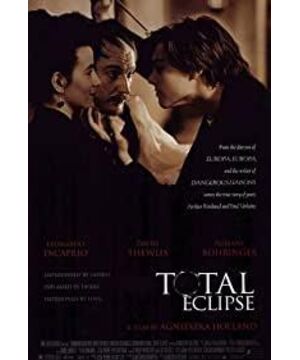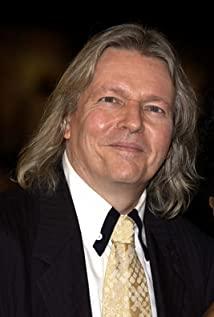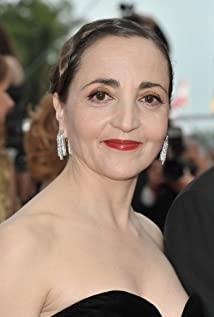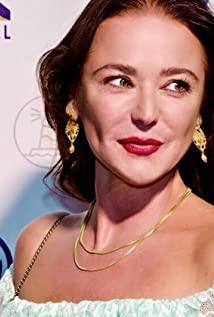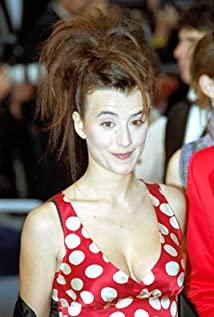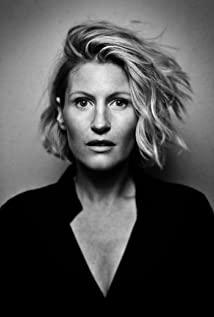I haven’t seen many movies about poets. Talking about Neruda’s “The Postman” always reminds people of his fat and bloated body, which seems to magnify Nie’s slow personality in the visual image, which is not enough. Shows the poet's sensitivity and inner passion. Author films by Tarkovsky et al, and silent, stylized, ritualistic films like The Color of a Pomegranate and Blood of a Poet, seem to be overly obsessed with metaphysical and occult passions. But "Total Eclipse of the Heart" explains for the first time what a poet really should be in—innocent and complicated, crazy and self-willed. Rimbaud and Verlaine are a pair of poets' confidantes. Their behavior has nothing to do with ethics, sometimes even breaking the law, just to achieve one purpose, that is, to follow their inner feelings.
After watching the movie, there is this idea: If Verlaine had a wife with Rimbaud's talent, or if Rimbaud had a sister who could care for him like Verlaine, then homosexuality would not breed. Sometimes, between the two poets, the fire of love seems to be ignited not because of their physical attraction, but first of all for spiritual reasons, even though in the end Verlaine still chooses the body of Ai Rimbaud, but When he said this, it was obvious that he himself was not particularly clear.
Love's dominance over the world, humanity, social relationships, and soul is so overwhelming that it draws in two lonely same-sex poets into a romantic relationship. At first, when Verlon said the so-called "love", even Rimbaud himself had an indescribable sarcasm and disdain. Love - or lust, as the most essential thing in this world, is ridiculed and dismissed by a poet who only loves his own verses and his determination to save the world. At that time, in order to tear apart the hypocrisy of love in front of Verlaine, he bloodily pierced Verlaine's palm with a dagger. But later, when Rimbaud was angry with Verlaine for his offending words, Rimbaud wrote an apology with remorse. In love to the end, Verlaine would go crazy enough to hit Rimbaud with a pistol—even if only in the palm of his hand.
It can be said that in the end, Rimbaud himself did not understand how much of the mutual attachment between Verlaine and Verlaine was love. But there is no doubt that Rimbaud finally no longer doubted the fact that he "liked" Verlaine. By this time, it doesn't matter whether this attachment is love or not, the most important thing is that their souls have locked on each other, and they can't sleep well when they leave each other. This is a process in which people objectify themselves through their emotional input, and it is also a process of subjectivating objects.
In his attitude towards life, Rimbaud is more extreme, aggressive, dominant and macho. Although Verlaine is older, she plays the role of a younger brother, a follower, a recipient of lust, and a woman who comforts and lubricates the relationship between the sexes. For poets, the purpose of all life is to break the confines and live unrestrainedly. As Rimbaud said, he "wanted to be everyone". Behind this attempt is to use the poet's sensitivity to capture all The subtle and hidden joys and sorrows of human beings. "The world is too old, there is nothing new, everything has been said." This sentence comes from "Ecclesiastes" and has been quoted by countless poets and philosophers. This quotation itself is the most simple intertextuality. The proof of sexuality, repetition, is undoubtedly a fact, and therefore the greatest tragedy of mankind. The biggest challenge we live in is how to make today different from yesterday, and how to make each day different from the day before, but human beings are obviously powerless in this regard. Rimbaud's mother asked, "Is there any future for what you're doing?" Rimbaud replied, "I don't know, but this is what I'm going to do." Perhaps the poet's life consists in discovery. Sudden turn and discovery are also the two tasks that Aristotle entrusts to tragedy. Even Rimbaud and Verlaine's homosexuality can be understood as a tribute to the beauty of breaking taboos, and an exploration of the multiple possibilities and destinations of human lust.
The greatest qualities of the poets in "Total Eclipse of the Heart" are doubt, rejection, and willfulness. Rejection of love, of opposite-sex wives, of high society, of vulgarity, of an innocuous way of life... This reminds me of Chris Strand, the painter in The Moon and Sixpence. But in Total Eclipse of the Heart, the characters are receptive, not bewitching and biological instincts. As for the heart-wrenching persecution of the object of love's projection, even to the point of death, it reminds me of "Empire of the Senses", "The Moon of Bitterness", "The Room of Drifting Desire"...all these expressions are in Proof: Sex and death are two sides of the same coin.
The genius of "Total Eclipse of the Heart" is that it dismantles the evidence of the directionality of human existence through the poet's rebellion. Even if it is love, it makes you feel that it is not love. At least not only.
Postmodern sex seems to pay homage to human rebellion with a bohemian exile of instinct. Rebellion means that the self is speaking, giving up silence, it means avoiding reincarnation, everything that can be implanted into the structure, all binary oppositions of yin/yang, male/female, each other/this, life/death, everything can be called archetype Or the system of circular diagrams, will be questioned. Man is a paradoxical creature that realizes itself by acquiring such a definition through the self: what it is and what it is not, not itself.
View more about Total Eclipse reviews


